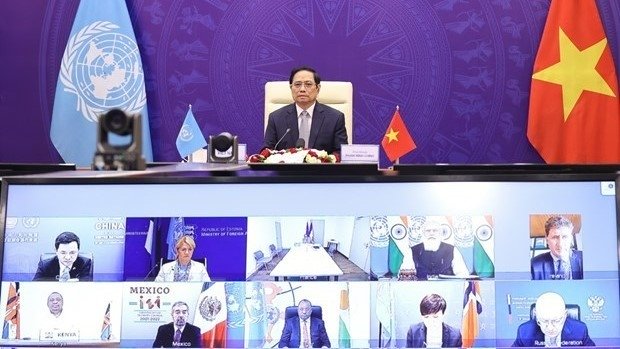
PM Pham Minh Chinh attends the United Nations Security Council (UNSC)'s high-level open debate on maritime security. (Photo: VNA)
Valeria Vershinina from the ASEAN Centre at the Moscow State Institute of International Relations (MGIMO) said Vietnam’s approach to regional security issues coincides with that of Russia, that is concerted efforts are needed to make progress in this field, with the participation of international organisations and regional architectures like ASEAN and the ASEAN Regional Forum (ARF), while maintaining the coordinating role of the UN.
She took note that Vietnam-Russia bilateral cooperation in maritime has covered different spheres, from information sharing to research, exploration, symposiums on marine organisms, shipbuilding, maritime infrastructure, off-shore exploitation, naval collaboration and search and rescue operations at sea.
At the UNSC High-level Open Debate on “Enhancing Maritime Security – A Case for International Cooperation”, held virtually on August 9, PM Chinh presented three proposals.
First, it is imperative that states and international organisations develop a comprehensive, extensive and broad awareness of the importance of oceans and seas, and the threats to maritime security.
Second, maritime security is a global issue and therefore requires global solutions.
“Vietnam proposes the development of a network of arrangements and initiatives for regional maritime security with the United Nations working as the coordinator, to bolster information and experience sharing, coordinate actions, and address common challenges in a timely manner,” the leader said.
Third, the policies, regulations and conducts of states at sea must be in line with international law, especially the United Nations Charter and the 1982 UNCLOS.

Comment
Print